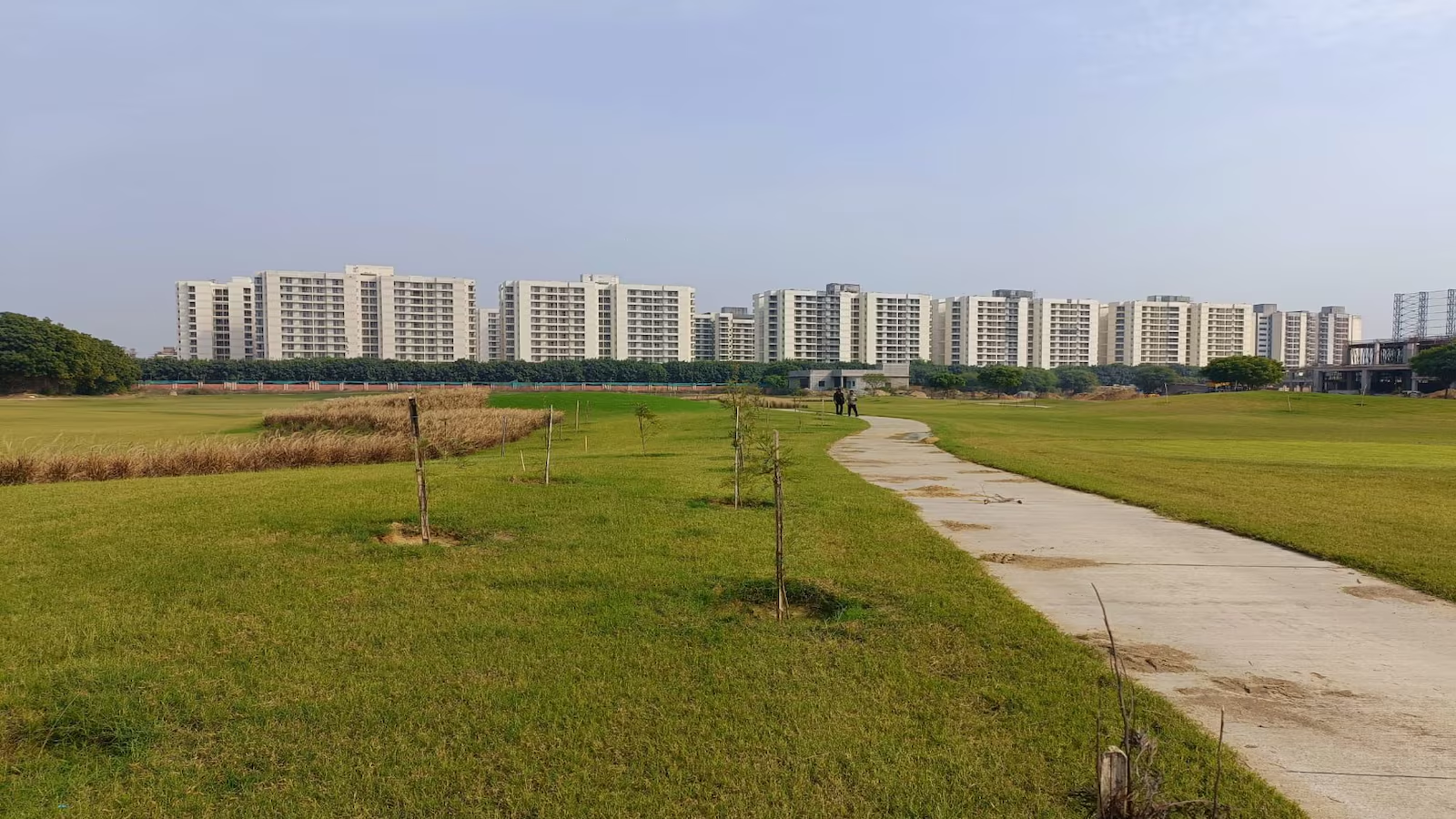News
Budget: Realty wish-list – industry status, tax incentives, single window clearance…


The real estate sector has huge hopes from the upcoming Union Budget 2023.2022 has a very eventful year for the sector with revival is sales in most of the markets in the country. While residential sales bounced back post Covid in 2022,commercial leasing also witnessed a pick-up. Housing sector is hoping for a robust demand in 2023 and to aid that it expects the Union Budget 2022 will play a major role. Relaxations in taxes, reduction in stamp duty, GST rationalization, industry status and single window clearance are some of the key demands of the realty sector. We present a realty wish-list from industry stalwarts –


Deepak Kapoor, Director, Gulshan Group
The Budget should mirror the aspirations of the realty sector and support growth-inducing factors. GST rates on construction materials like steel, cement, and tiles should be rationalised, keeping in view the overall health of the sector. The government should help distressed developers and allocate funds for the completion of stuck projects. The current stand of RBI on the repo rate should also take the views of developers into account. The Budget should offer a premise of agents of development and progress and stamp out hindrances impeding the growth of the sector.


Manoj Gaur, President, CREDAI NCR and CMD Gaurs Group
To begin with, there should be a separate deduction for principal repayment as currently clubbed under section 80(c). It should be raised from the existing Rs. 1,50,000 limit. There is also a need to redefine affordable housing from the current ceiling of 45 lakhs in urban and 30 lakhs in non-urban to take into account the inflationary factors. Further, the carpet area should also be increased to 90 sqm in the metros and 120 sqm in non-metro cities without any price cap. Long-term capital gains on capital assets should also be taxed at 10%. The holding period should be reduced to 12 months in line with the holding period of other capital assets like listed equity shares and equity-oriented mutual funds. The sector would also like the honourable FM to extend exemption under Section 80C to REIT investments starting with Rs. 50,000. The period of holding for units of REIT should be reduced to 12 months (as applicable for listed shares) to qualify as a long-term capital asset from the current 3 years. The deduction under Section 24 (b) on housing loan interest in the case of individuals with respect to the first self-occupied property should be allowed without any limit or at least capped at Rs 5,00,000 in respect of the self-occupied property. Besides, industry status should also be conferred on real estate.


Parveen Jain, Chairman, NAREDCO
“Meeting the necessary criteria outlined in Section 80IBA is strict, causing most cities to be unable to comply. Consequently, the Section should be updated to accommodate the evolving needs of the industry. As an example, constructing a project in Mumbai or Delhi where the properties cost less than Rs 45 lakh is difficult. Additionally, it is not realistic for firms to consume 80/90% of FAR when taking on a large-scale project”.


Amit Jain, Director, Mahagun Group
The realty sector has made a smooth transition from the pandemic-induced turbulences. We believe the sector should further be stabilised by introducing profound measures in the Union Budget. Reductions in GST, circle rates, and stamp duty would be significant fresh-start policies allowing the housing sector to gain an upper-hand advantage right at the year’s outset. Besides this, interest rate subsidies should be provided to realtors to cushion the impact of torrid inflation rates and expedite the construction process of stalled projects. Tax waivers on interest paid on home loans are one of the most pressing demands of the realty sector.


Dr Niranjan Hiranandani, Vice Chairman, NAREDCO
“In order to accomplish the goal of Housing for all, real estate developers should be encouraged to create surplus rental housing with tax incentivization. Industry recommends increase in standard deduction in Rental housing up to 50% and incentivize service rental apartments by allowing accelerated depreciation. Also, tax on notional income from house property held as stock in trade needs to be waived off completely to boost real estate investment. In addition, cap on affordable housing should be capped upto Rs1 cr in metro cities as broader spectrum of homebuyers can avail the benefit of CLSS scheme, as industry witnessed growth of first-time homebuyers post pandemic.” He additionally emphasized on “granting infrastructure status to avail long term cheap funding as this interest rate sensitive sector is grappling with inflation led high cost of credit borrowings”.


Amit Modi, President, CREDAI, Western UP
The Union Budget should identify the growth inducers and accentuate its pace to mobilise the sector’s progress. One of the most crucial demands is to accord ‘Industry Status to Real Estate Sector’, which will allow the sector to avail legitimate finances and low-cost loans from banks and other financial institutions. The cost benefits could then be transferred to the end users and homebuyers. For the benefit of homebuyers, the input credit regime should be reinstated in the GST regime for the residential real estate at least. This will help in making homebuying an affordable and buyer-friendly process. It will protect buyers and developers from the ramifications of the capricious cost of raw materials. The government should facilitate a Single Window Clearance to enable faster deliveries and project completions. An exemption limit on Interest on Home loans should be granted for first-time homebuyers. The Principal Deduction Rules Under Section 80 C should be enacted. This will formalise that the deduction of the principal amount of the housing loan repaid would not be conflated with other deductions under Section 80C. Alternatively, the limit under Section 80C should be increased to Rs 5 lakhs.


Aman Sharma, Director, Spaze Group
“Strong, healthy consumer demand is the crucial driver of the growth of the real estate sector today. The Budget should reflect upon the aspirations of developers who are still tiding over the turbulence caused by the pandemic. The most crucial demand is to give tax relief to developers to expedite the completion of stalled projects and take a compassionate recourse in times of difficulties. The most recurrent demand is to bestow industry status to the real estate sector and allow players to be at the receiving end of many associative benefits.”


Sanjay Sharma, Director, SKA Group
The real estate sector is one of the strongest growth pillars of Indian economy. Giving industry status to the real estate sector has been one of the most forwarding demand. This would allow developers to take loans at relatively low interest rates, avail tax incentives, and waivers, which will be act as relievers in times of grave economic crisis. The real estate sector has had a strong resurgence post-Covid 19 and needs government support to keep the momentum going.”


Anurag Mathur, CEO, Savills India
“The real estate sector is looking to the Union Budget with expectations of further support in the form of policies that will not only benefit the industry but also have a positive impact on the overall economy of the country. An area of high priority for the government is increasing tax benefits for home buyers. Raising the cap for deducting interest payments on home loans to Rs 5 lakh is a real need and should be a key consideration. Further, higher allocation for the SWAMIH fund will be a great help for stalled projects. Several sectors like life sciences, data centres, EVs, warehousing, etc., are poised for high growth in India. Infrastructure status for real estate sector will act as a catalyst for these sectors too.”


Ankur Gupta, JMD, Ashiana Housing Ltd.
The Indian economy will continue its growth momentum and both services and manufacturing sectors are witnessing a strong and resilient growth rate. In line with this northward trajectory in the overall economy, the real estate sector would also do well. The buoyancy which we have witnessed in the realty sector in the past few years is set to continue in the near term. Despite the headwinds in the global economy along with the inflationary pressure, the challenges are unlikely to impact the housing sector in India in the near term. The upcoming budget hopefully will provide home owners further relief by giving more interest subsidies on taxation.


Avneesh Sood, Director Eros Group.
“The Union Budget 2023 should offer a degree of personal tax relief, either by way of lower tax rates or by readjusting tax slabs. Doing so would also help boost housing absorption. As the real estate sector gears up to receive support from the Union Budget for 2023-24, an increase in tax exemption on interest paid on home loans, exemption on rental incomes, uniformity and expansion in the definition of affordable housing in the upcoming Budget. The government should make it easier for developers to access non-bank financing such as bonds and equity from institutional investors. We also expect that the government in its forthcoming budget should also look into the availability of land, as well as its cost, before setting prices for houses in India”.


Nayan Raheja, Raheja Developers
“We have high expectations from Financial Budget this year. The Budget should focus on alleviating the real estate sector from ongoing problems. The Finance Ministry should take stock of the insolvency debts of realtors and delays in project deliveries. The Budget should introduce tax remissions on the interest rates of home loans levied by banks which have been triggered by the all-time high inflation rates in previous quarters. This will provide relaxation to developers and simultaneously pace up the construction activity on ongoing projects.”


Ashwani Kumar, Pyramid Infratech
To sustain the ever-growing demand, the real estate sector expects some incubatory measures to increase the sale velocity and stamp out impeding problems currently plaguing the sector, which include high mortgage rates on home loans. One of the most consistently voiced demands is upsurging the limit for deduction for principal repayment of housing loans which is currently capped at Rs 1,50,000, to bolster residential demand and encourage buyers to invest in homes. There is also a strong wave in favour of providing industry status to the real estate sector, which would also approbate taking easy loans and financial amenity assurances from banks. An apparatus of single-window clearance should be set up to augment the real estate sector’s growth in the right direction.


Narayan Bhadana, Managing Director, 4S Developers
“Steady work on the road and infrastructural projects are needed to accentuate the value of real estate offerings which are located in the vicinity. I hope some action-based policies are formulated in the Budget to expedite the construction pace and operational process of such projects. The real estate sector, especially luxury realty, will majorly benefit as the homebuyers’ demand continues to be buoyant and absorption levels remain high.”


Rajesh K Saraf, Managing Director, Axiom Landbase
“The inevitable rise in construction material costs and various other means of production capital is only pegged to increase on a bigger scale in the near future. The world will soon grapple with the stifling impact of the recession. The demand for increasing the price cap of affordable housing projects seems fair and justified. This will pay dividends for both buyers and developers. The developers assured of certain benefits are more likely to develop affordable housing projects, which will cater to mid-income level buyers.”


Ashish Bhutani CEO Bhutani Group
The taste and requirements of the new-age homebuyer have evolved, particularly post-pandemic; and the developers have understood it well. In fact, buyers across all age groups now look for much more than a well-constructed, quality brick-and-mortar structure. Be it luxury or regular apartments, the expectations of the buyers have gone beyond the traditional definitions and most of the projects are delivered accordingly. Today, realty developers focus on customer-centric projects which provide a distinctive living experience with best-in-class amenities across their established ecosystems. That is the primary reason behind the sales witnessing a healthy rise during the past few months.”
-



 News3 weeks ago
News3 weeks agoKW Delhi 6 Mall Onboards New Brands
-



 News4 weeks ago
News4 weeks agoManasum Senior Living Launches IKIGAI GOA, A Senior Living Community in North Goa, in collaboration with Prescon Homes
-



 News2 weeks ago
News2 weeks agoGodrej Properties Sells Rs 3k cr+ Homes of Godrej Zenith, Gurugram, within 3 days
-



 News4 weeks ago
News4 weeks agoBridging India Divide: Top 5 Tier- 2 Cities to Focus On
-



 News3 weeks ago
News3 weeks agoCommercial Realty Gets Tech Savvy: Fast Construction, Enhanced Convenience
-



 News4 weeks ago
News4 weeks agoMultipoint Connection – A Definite Boon
-



 News3 weeks ago
News3 weeks agoRBI’s Status Quo on Key Policy Rates to Help Maintain the Real Estate Growth Momentum, Say Industry Stalwarts
-



 News1 week ago
News1 week agoOlive Announces Dhruv Kalro as Co-Founder

















